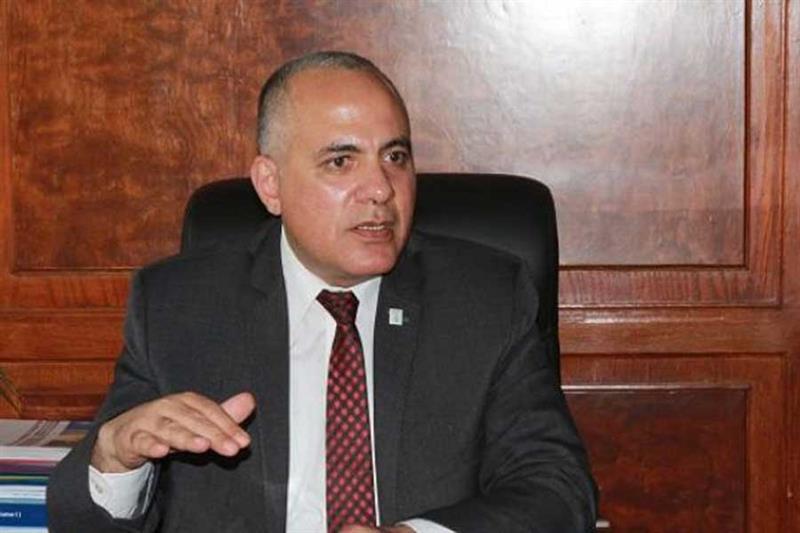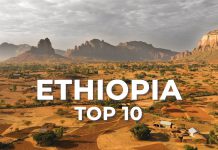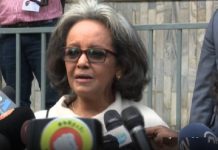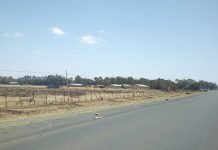Africa-Press-Ethiopia Ethiopia “tells lies” about Egypt’s water and share of the Nile River’s water, Egyptian Minister of Irrigation and Water Resources Mohamed Abdel-Ati said on Sunday while addressing the Senate’s Agriculture and Irrigation Committee in a meeting to discuss the ministry’s 2050 strategy.
“We are facing negative propaganda that Egypt is having the lion’s share of the Nile River’s water, which is not true,” Abdel-Ati said.
The minister explained that Egypt has no green water – the accumulated water in soil and vegetation after rainfall – while “a state like Ethiopia plants 90 million feddans from rainwater… and has more blue water than Egypt.”
There are lakes that reserve up to 50 billion cubic metres (bcm) in Ethiopia in addition to the Tekeze Dam, the Grand Ethiopian Renaissance Dam (GERD), and the groundwater, Abdel-Ati noted.
Groundwater aquifers in Ethiopia lie at a depth ranging from 20 to 30 metres, he said, while aquifers in Egypt can be at a depth of around 100 metres.
Nile shares and accords
“I am referring to Ethiopia because it tells lies about the water file in Egypt,” Abdel-Ati said during Sunday’s meeting, condemning the upstream country’s references to so-called “colonial treaties.”
Repeated statements by Ethiopian officials have rejected the allegedly called “colonial agreements” of Nile water shares singed in 1902, declaring it is “unacceptable” for Sudan and Egypt to use these historical agreements as reference points while negotiating the GERD crisis.
The Anglo-Ethiopian treaty was signed in 1902 between the United Kingdom – representing Egypt and Sudan – and Ethiopia – represented by Emperor Menelik II of Abyssinia. While the agreement has prohibited the Ethiopian construction of any waterworks across the Blue Nile that would affect the river’s natural flow, it has granted sovereignty of the then Sudanese Benishangul region to Ethiopia.
Ethiopia was not party to other Nile water accords such as the 1929 agreement and its 1959 supplementary agreement.
In May, Sudan denounced the Ethiopian rejection of accords on Nile water shares and urged Addis Ababa to commit to the international agreements it signed as “an independent state” as disavowing these agreements means “compromising sovereignty” over the Benishangul region on which Addis Ababa is building the GERD.
The two downstream countries have rejected Ethiopia’s attempts to include the renegotiating of the Nile Water agreements in GERD talks.
Egypt’s President Abdel-Fattah El-Sisi has repeatedly called on Ethiopia not to compromise Cairo’s share of Nile water, saying “all options are open,” and stressing that “cooperation is better than fighting.”
Egypt — which relies on the Nile for up to 90 percent of its fresh water — and also Sudan have constantly voiced concerns over the GERD’s potential impact on their water security in the absence of a legally binding deal regulating its filling and operation.
Cairo and Khartoum have been negotiating with Addis Ababa for a decade now to reach a comprehensive and legally binding agreement over GERD but to no avail as has been seeking mere guidelines that can be revised at any time.
For the same reason the latest round of African Union-sponsored talks to resolve the GERD dispute collapsed in April.
After the United Nations Security Council released a presidential statement in September encouraging the three countries to return to the negotiations table, they have expressed their readiness to engage in a new round of talks AU-sponsored talks.
Managing water resources
Abdel-Ati affirmed during the meeting that Egyptian state is always keen on successfully managing its water file.
There is no doubt that the water crisis worsens with time, the Egyptian minister said, but the state will not allow a water crisis to occur in the country and it raises awareness of the importance of rationalizing consumption.
“Egypt applies the concept of optimal use of water resources,” Abdel-Ati stated on Sunday, adding that Loïc Fauchon, President of the World Water Council, has praised Egypt’s management of the water file and recommended its experience to be studied.
Egypt, which is considered one of the most water-scarce countries in the world, receives around 60 bcm annually – mainly from the Nile – while its needs stand at around 114 bcm, placing the 102-million country well below the international threshold for water scarcity, at 560 cubic metres per person annually.
In previous statements of Abdel-Ati, he explained the large gap in water resources in Egypt is overcome by importing 54 percent of its virtual water, which is the embedded water required to produce commodities, and reusing 42 percent of its renewable water.
Egypt has developed a four-pronged National Water Resources Plan, running through 2037 and based on rationalising water use, improving water quality, providing additional water resources, and creating a climate suitable for optimal water management, the minister added.
Egypt has also drawn a strategy for its water resources until 2050 at a cost of EGP 900 billion.






